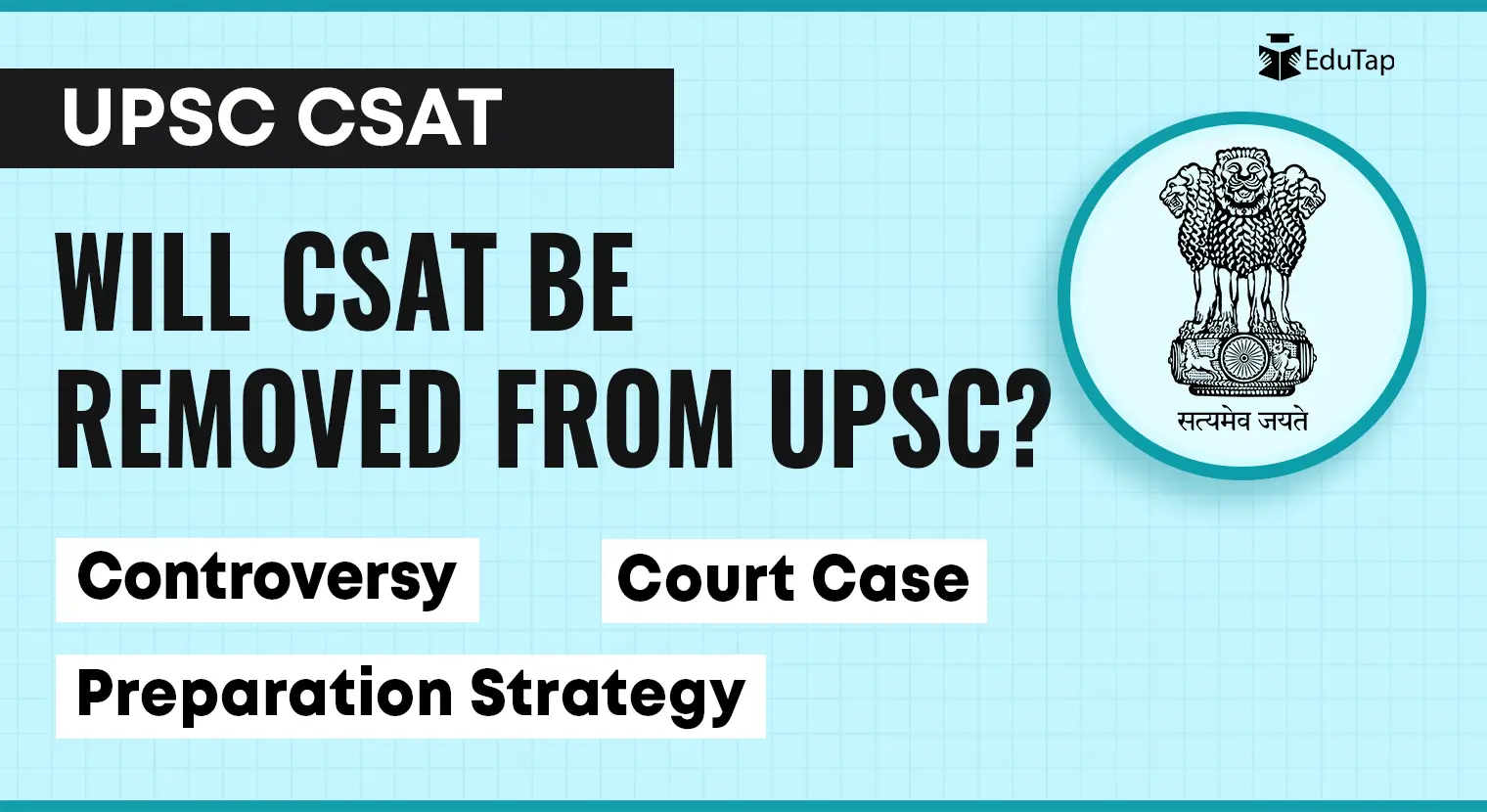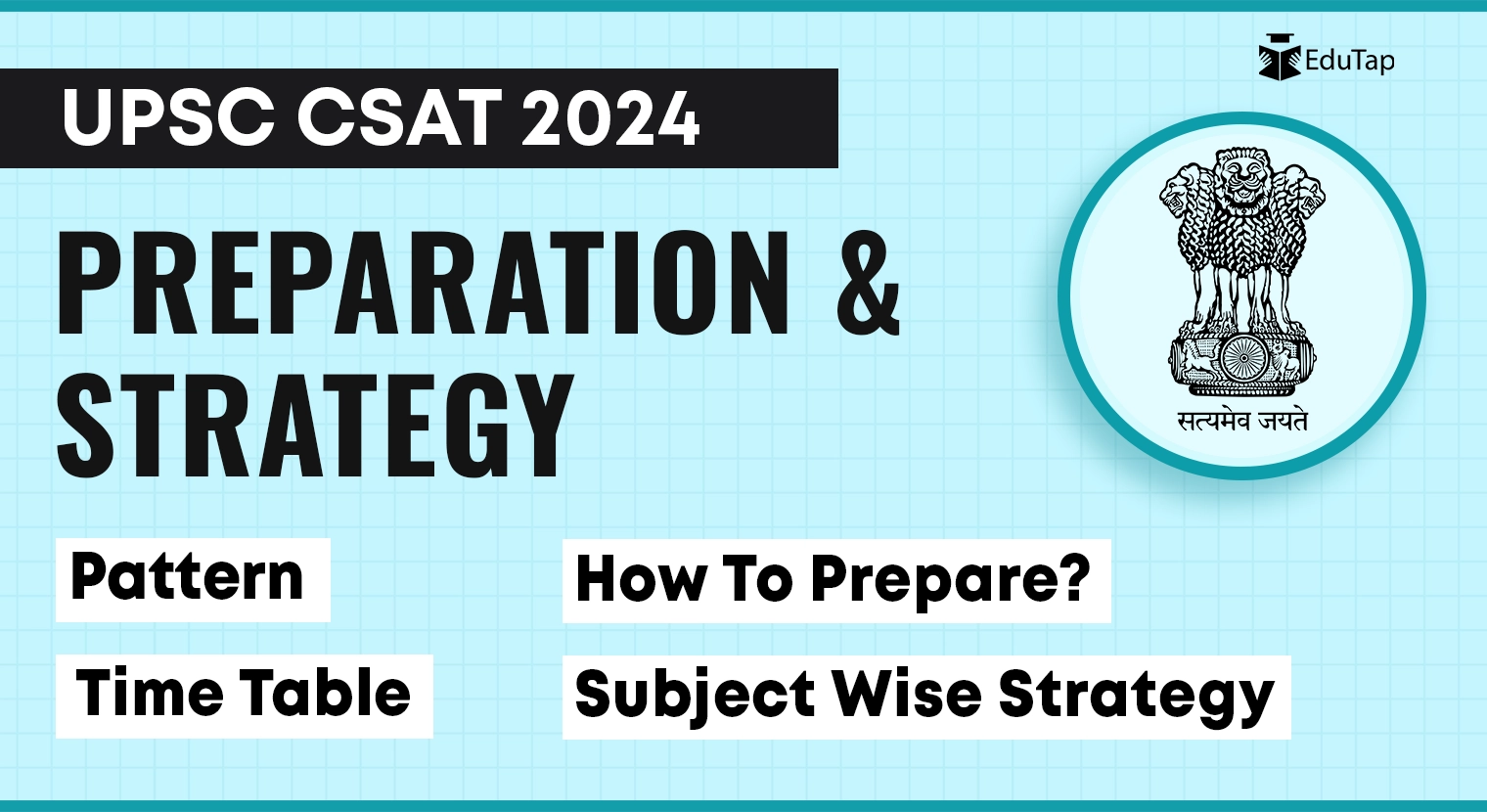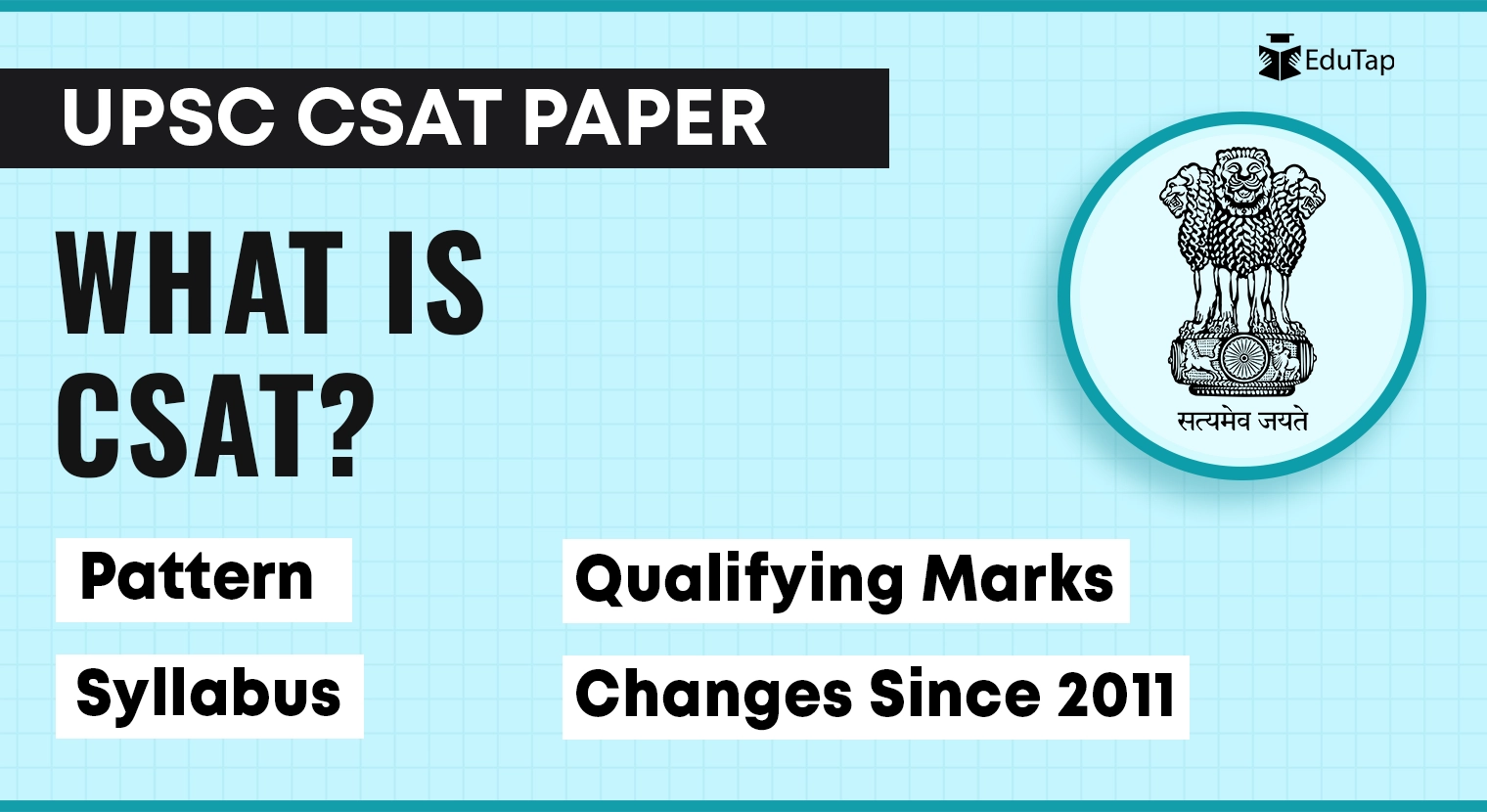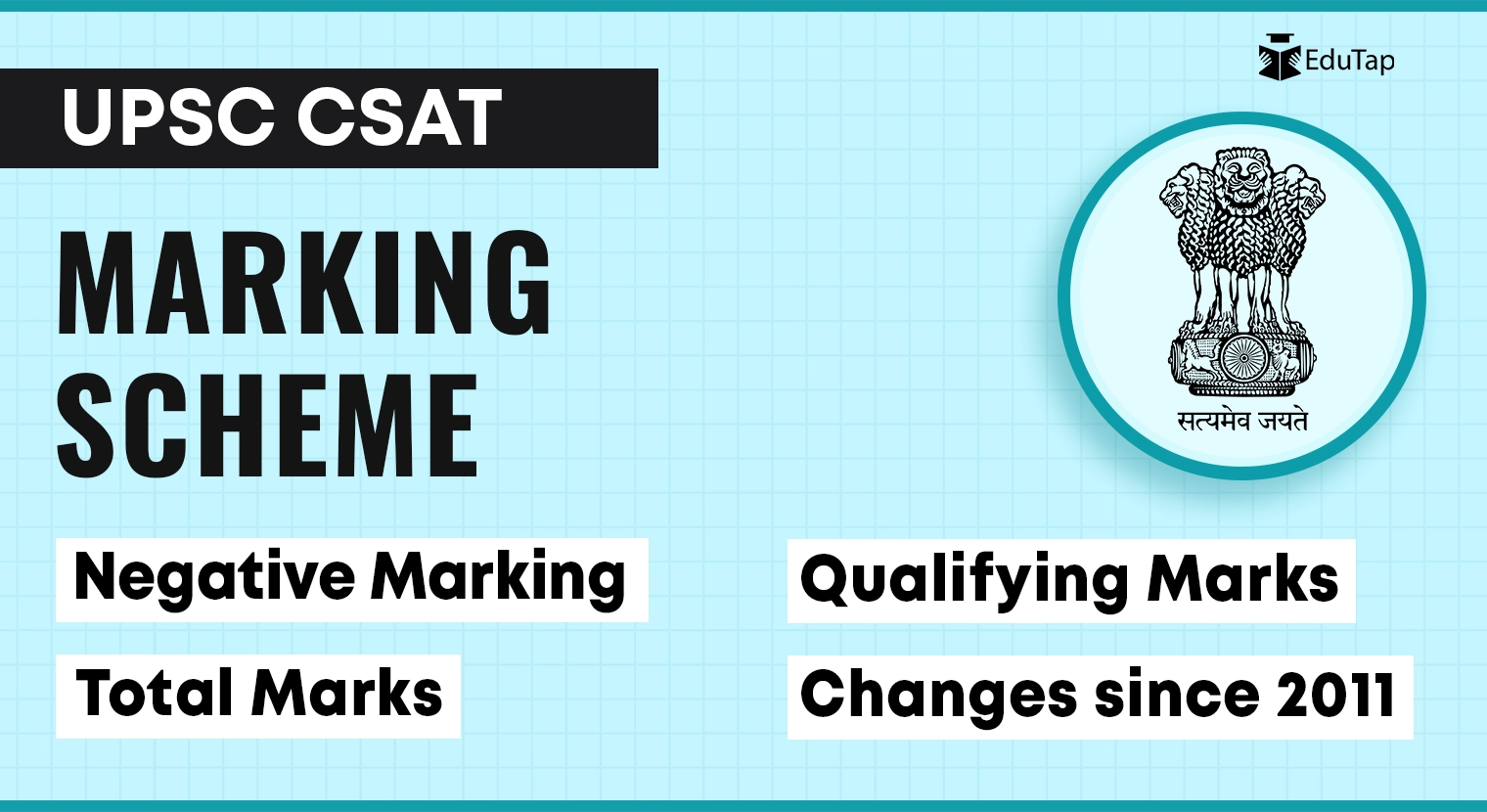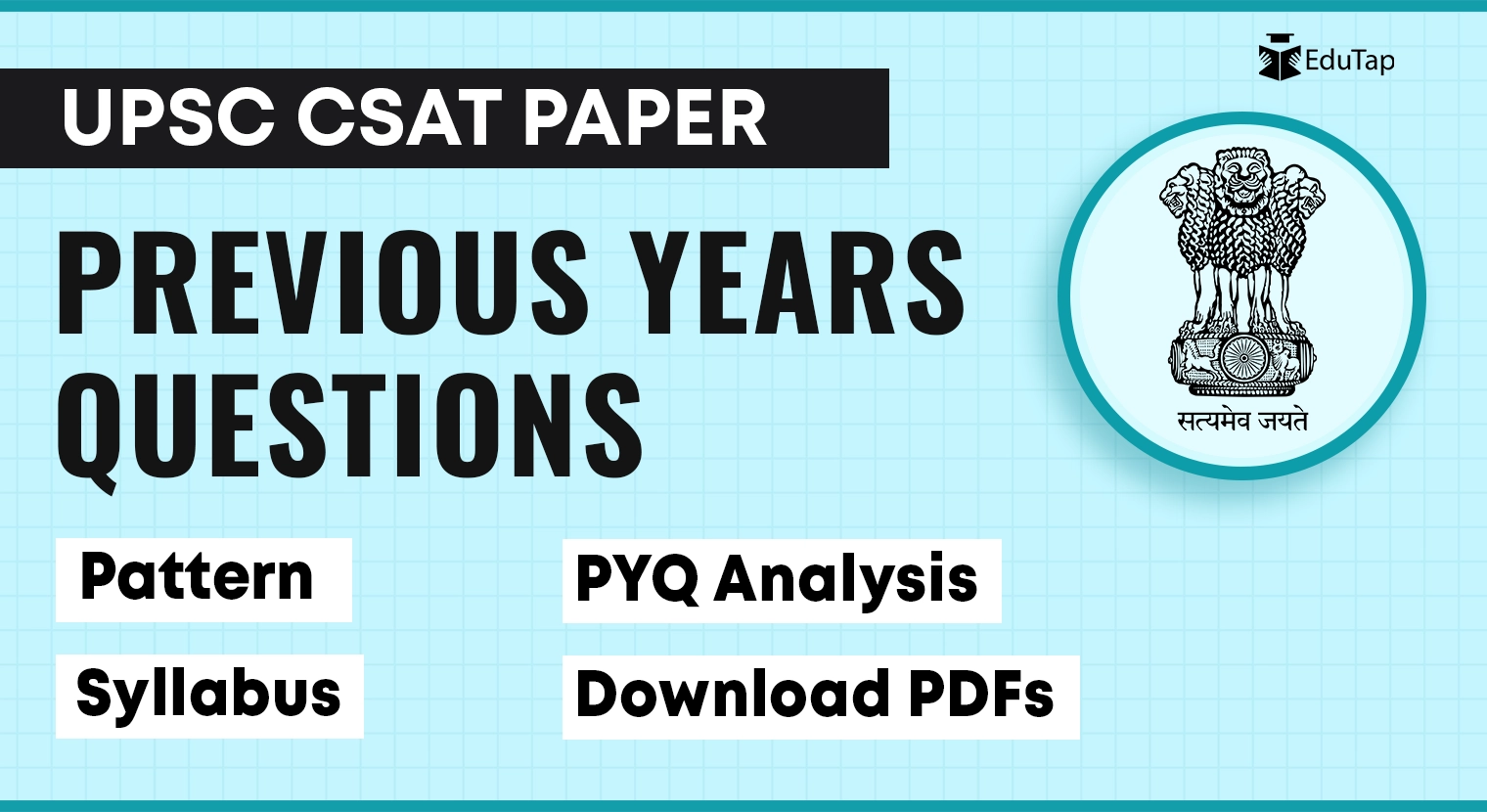The debate over whether the UPSC Civil Services Aptitude Test (CSAT) should stay or be removed has stirred up lots of discussion and controversy. While some aspirants argue for its removal, others emphasise its significance in evaluating candidates.
In this article, we’ll discuss the key aspects of this debate and explore the arguments for and against the removal of CSAT and related court cases. We’ll also discuss the CSAT timeline and strategy to prepare for the exam.
The Controversy
UPSC introduced CSAT in 2011 as a Paper 2 alongside the General Studies Paper 1. The prime purpose of this paper was to make the prelims paper more objective and assess candidates’ aptitude and comprehension skills.
However, after its introduction, CSAT quickly became a subject of controversy, sparking protests and concerns among aspirants. Soon, it became a subject of significant debate for several reasons:
Alleged Bias
Many aspirants argued it was biased against candidates from certain educational backgrounds. The paper included some questions that seemed to favour candidates with strong backgrounds in mathematics and English, potentially disadvantageous to others.
Uneven Playing Field
Many aspirants argued that the CSAT created an uneven playing field. They believed that it should evaluate the subject-specific knowledge over assessing aptitude in areas not directly related to the roles and responsibilities of a civil servant.
As a result, many aspirants protested against the CSAT paper, demanding its removal. However, some aspirants were against the removal of the CSAT.
Arguments Against Removing CSAT
Here are the arguments against removing the CSAT:
Aptitude Assessment
Some believe evaluating a candidate’s aptitude and critical thinking skills is necessary for civil services roles.
Basic Literacy Skills
As civil servants often need to communicate effectively, the CSAT checks a candidate’s English language skills, which is important for the job.
In response to the concerns raised by aspirants, the UPSC made some changes in 2015. From 2011 to 2014, merit was calculated by combining marks from both GS and CSAT. However, in 2015, CSAT was made qualifying in nature. It means that the marks scored in this paper will not contribute to the prelims cut-off. However, candidates are still required to score at least 33% (66 marks) out of the total 200 marks to qualify the CSAT paper.
After getting familiar with the controversy, let’s take a look at the court cases filed by aspirants.
UPSC CSAT Court Case
A group of UPSC aspirants filed a court case for the re-conduction of UPSC CSE prelims 2023. Aspirants claimed 2023 CSAT had at least ten questions from Class XI NCERT Mathematics. Some questions resembled the difficulty level of exams like IIT JEE Advance and CAT.
Further, the aspirants also filed a case in the CAT (Central Administrative Tribunal) to reduce the qualifying criteria of CSAT from 33% to 23%. They also alleged that the paper was biased toward aspirants from Hindi backgrounds and gave an unfair advantage to the aspirants with medical, science and engineering backgrounds.
In response, the Delhi High Court dismissed the plea alleging that the questions in CSAT were of a higher difficulty level. The court also dismissed the petitioners’ claim of biased paper. Furthermore, no change was considered in the qualifying criteria of the UPSC CSAT paper and its passing marks remain at 33%.
Important Note:
While a few questions in the CSAT may have a higher difficulty level, most remained at an easy to moderate level. Candidates who have prepared well for the CSAT can confidently score 66 or more marks, regardless of their educational backgrounds. Furthermore, it’s important to note that the CSAT is a qualifying exam, so achieving passing marks is the primary goal.
Furthermore, it’s also crucial to understand that the difficulty level of the CSAT paper has increased over the past few years and it is expected to increase further in the future. To outperform the competition, it is important to make changes in your UPSC CSAT preparation strategy and learn how to identify easy, moderate, and difficult questions. This will help you identify and prioritise the easy questions for a strong start.
UPSC CSAT Preparation Strategy
Follow the below steps to prepare well for UPSC CSAT.
Step 1 Understand the UPSC CSAT Syllabus
Understanding the UPSC CSAT syllabus provides clarity on the subjects and topics that candidates need to focus on. This clarity is essential for efficient and targeted preparation, helping aspirants allocate their study time effectively.
Step 2 See Where You Stand
The next step is to assess your current status in this paper by taking at least two recent previous years’ papers. Calculate your score for each paper. Scoring over 80 marks in both indicates proficiency. If your score is below 70, allocate dedicated time and plan your preparation accordingly.
Step 3 Identify Your Strong and Weak Areas
Analyse your performance in CSAT papers. Identify strong and weak areas in maths, reasoning, and English. This analysis forms the basis of your personalised UPSC CSAT prep strategy.
Step 4 Start Slow But Be Consistent
Don’t wait until the last 2-3 months before the prelims if you scored below 70 marks in the previous years’ papers. Start your CSAT preparation now with just 1-1.5 hours daily.
Step 5 Shortlist Your Study Material
Shortlist your UPSC CSAT study materials wisely. Ensure your chosen materials align with current trends, specific to the UPSC CSAT syllabus.
Step 6 Self Study or Coaching
To decide between self-study or coaching, ask yourself if you can analyse past papers, understand subjects using free resources, and maintain self-discipline. If yes, self-study might suffice.
However, coaching offers benefits like expert guidance, PYQ analysis, customised preparation strategy, doubts support, and more. It can help you score 70+ marks and qualify the UPSC CSAT.
Read the article “How to Prepare for UPSC CSAT” for more detail.
Conclusion
So, can the CSAT be removed entirely? The answer is complex. While the CSAT’s role has been reduced to a qualifying one, it still plays a part in the preliminary examination process. Additionally, with proper preparation strategy and regular practice, aspirants can score 70+ in the UPSC CSAT.
FAQs
The removal of CSAT from the UPSC examination has been a topic of debate, and changes have been made in the past. However, its complete removal remains uncertain and depends on future decisions by UPSC and authorities.
The debate arises from concerns about the perceived bias in CSAT against candidates from certain educational backgrounds. Some aspirants argue that CSAT questions may favour those with strong foundations in mathematics and English.
Maintain a strong focus on the existing syllabus and essential skills. Stay updated on official announcements. Be flexible, adaptable, and ready to adjust your strategy if changes occur.
To stay informed about any changes in the UPSC examination pattern, you should regularly visit the official UPSC website https://upsc.gov.in/ and monitor official notifications and announcements. You can also follow reputable news sources and UPSC-related forums for updates.
